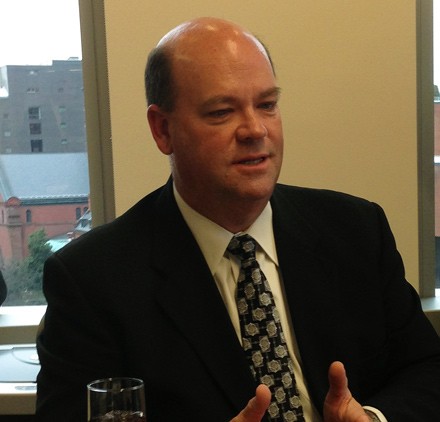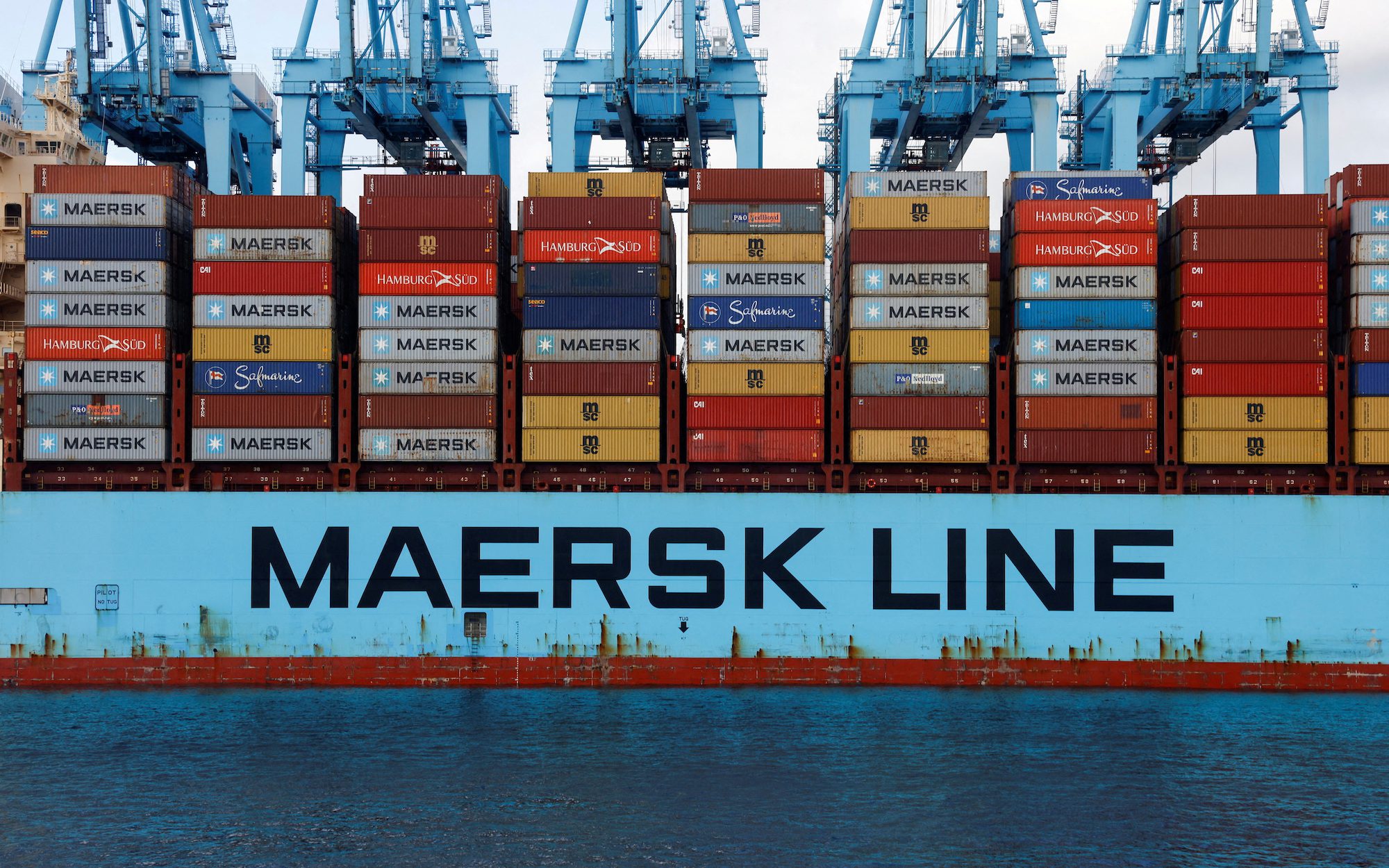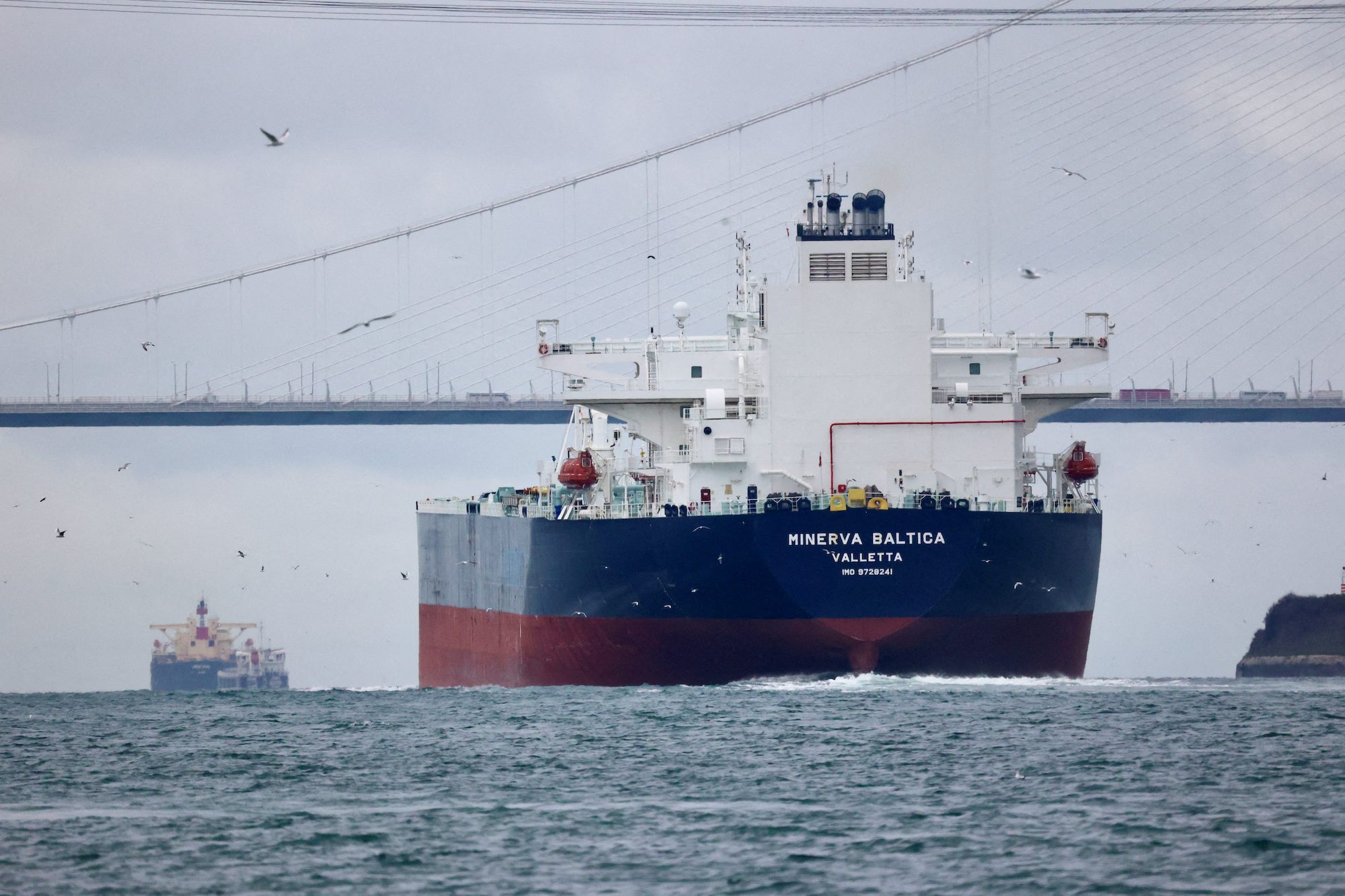ConocoPhillips’ CEO Ryan Lance
By Dawn Kopecki and Bradley Olson
(Bloomberg) — About a dozen U.S. drilling executives, including ConocoPhillips Chief Executive Officer Ryan Lance, were in Washington this week trying to persuade White House officials and lawmakers to lift the 40-year ban on U.S. oil exports, according to two people familiar with the meetings.
Chief executives from the lobbying group Producers for American Crude Oil Exports, or PACE, met with White House senior energy policy adviser Brian Deese March 11 seeking a rollback of the U.S. oil export ban imposed after the 1973 Arab oil embargo, according to two people, who asked not to be identified because the discussions weren’t public.
Producers are eager to lift the ban because oil in the U.S. is selling for about $10 less than the global benchmark. The meeting preceded a report Friday by the International Energy Agency that record U.S. crude supplies may soon test the limits of the nation’s storage capacity, further threatening prices.
“We’ve had a series of very productive meetings with senators from both parties and the administration and look forward to continuing those conversations in the months ahead,” said George Baker, PACE’s executive director, in a statement that didn’t outline what the talks included.
CEOs from 11 of PACE’s 16 member companies flew to Washington to meet with administration officials and lawmakers, including Marathon Oil Corp. CEO Lee Tillman, Chesapeake Energy Corp. CEO Doug Lawler and Occidental Petroleum Corp. CEO Steve Chazen, according to the group. They also briefed federal officials and lawmakers on market conditions, including industry job cuts, oil-production levels and the idling of oil rigs, said one of the people who was briefed on the discussions.
More Conversations
Frank Benenati, a White House spokesman, didn’t respond to a request for comment.
Administration officials, including Energy Secretary Ernest Moniz, have called the restrictions antiquated, and they are being reviewed in a years-long study in the department.
U.S. oil supply will expand this year by about 750,000 barrels a day to 12.56 million a day, up from a projection of 12.41 million in last month’s report, the Paris-based IEA, which advises 29 nations, said in a monthly market report. The agency boosted estimates for North American output in the fourth quarter of 2014 by 300,000 barrels a day.
U.S. energy policies severely restrict crude exports while applying no such limits to products processed in refineries. U.S. refiners are exporting record amounts of gasoline while producers contend with depressed oil prices. The U.S. has surpassed Russia and Saudi Arabia as the world’s largest producer of oil and natural gas, according to the U.S. Energy Information Administration.
Free Trade
ExxonMobil Corp. CEO Rex Tillerson, who isn’t a member of PACE, also urged the government and Congress to allow U.S. exports of oil and gas in a speech in Washington Thursday night.
“With free trade in energy and common-sense regulatory reforms, the U.S. energy industry can strengthen U.S. energy security and continue to pioneer the innovations that make possible the safe and responsible development of energy,” Tillerson said in remarks to the Economic Club of Washington D.C., according to an Exxon statement.
Executives also met on Capitol Hill with aides to Senator Lisa Murkowski, chairwoman of the Senate Energy and Natural Resources Committee. Murkowski, a Republican from Alaska, has publicly backed lifting the ban on U.S. oil exports and is working on a broad rewrite of U.S. energy laws.
West Texas Intermediate crude, the U.S. benchmark, reversed earlier gains to fall 95 cents, or 2 percent, to $46.10 a barrel at 8:14 a.m. in New York. Brent, the international benchmark, dropped 60 cents to $56.48 a barrel.
‘Listening Sessions’
“We’ve been holding a series of listening sessions and PACE has been part of that,” said energy committee spokesman Robert Dillon. Oil executives met with Republican and Democratic committee staff this week. “As we start to draft legislation, we want to make sure we gather all the ideas. We want to hear from everybody.”
Producers calling for an end to the ban have been beset by the biggest oil-market crash since 2009, which has made it harder to turn a profit by drilling in shale, a technological achievement that helped unlock a boom in North American supply.
Last year, the Department of Commerce began to clarify some rules relating to a kind of ultra-light crude called condensate. That review allowed companies including Pioneer Natural Resources Co. to export condensate after a minimal amount of processing, akin to existing regulations that allow refined products such as gasoline and diesel to be exported.
It isn’t clear how much exports have increased because of those allowances, since government data doesn’t release a separate tally of how much condensate has been shipped abroad. U.S. crude exports rose 11 percent in January from December, to 491,000 barrels a day, according to Bloomberg calculations from U.S. Census Bureau data. Of that total, 400,000 barrels a day went to Canada, where U.S. producers and traders are allowed to export under federal rules.
(A previous version of this story corrected a company name in the penultimate paragraph.)
–With assistance from Jonathan Allen in Washington and Grant Smith in London.
Copyright 2015 Bloomberg.
Unlock Exclusive Insights Today!
Join the gCaptain Club for curated content, insider opinions, and vibrant community discussions.

 Join The Club
Join The Club













